The papal transition has brought widespread media speculation about what the new pope, Benedict XVI, will mean for the Roman Catholic Church, both in North America and worldwide. Adjectives like "conservative," "dogmatic," and even "radical" have surfaced in interviews and projections. But for many Catholics laboring in American seminaries, the new papacy means continuity, strength, and a new chance at unity.
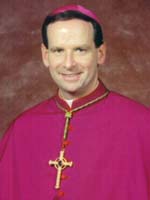 |
"He [Pope Benedict XVI] is known as a very compassionate and kind man, and that's what a priest is meant to be."
- Auxiliary Bishop Michael Burbidge of Philadelphia
|
|
"I simply sense stability and calmness now," said Bishop Michael Burbidge, an auxiliary bishop of Philadelphia who was formerly the rector of the archdiocesan seminary, St. Charles Borromeo, Overbrook. "We're moving forward."
Stability, continuity and unity were the hopeful predictions of several people close to Catholic education who spoke to In Trust about the new papacy.
"It will bring Christian unity back up on the agenda," said Geoffrey Wainwright, Cushman professor of theology at Duke University Divinity School.
Referring to Benedict's homily before the conclave, in which then-Cardinal Joseph Ratzinger condemned the "dictatorship of relativism," Wainwright said that the new pope "is for the truth with a capital 'T'." A British Methodist, Wainwright knows Benedict from Wainwright's co-chairmanship of the Joint Commission for Dialogue between the World Methodist Council and the Roman Catholic Church. He has met the new pope on many occasions over the last 20 years.
"He's been against ... intellectual trends and fashions in the last generation," Wainwright said, adding that Benedict's stance is vital to theological education, with its respect for the wisdom of the past.
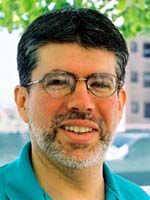 |
"He [Benedict XVI] is going to be a man who has a particular role in the church ... at a particular time in history."
-Steve Dos Santos, Catholic Theological Union
|
A focus on unity is much needed, agreed Steve Dos Santos, a member of the Missionaries of the Most Precious Blood who received a master of divinity degree this spring from the Catholic Theological Union in Chicago. Dos Santos, who will be ordained a deacon this summer, said the harsh divisions that characterize American political and cultural life are also affecting the American church.
Dos Santos thinks that political divisions also influence the way some people approach theological questions, but he wishes this were not the case. "We need to be able to make room at the table for those on both sides" of political and theological questions, he said, "because we're both in the church."
The new pope's reach will likely extend beyond encouraging unity in the United States, said Dominican Father Charles Bouchard, president of Aquinas Institute of Theology in St. Louis, Mo.
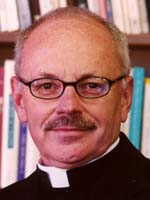 |
"We need to continue to find ways to create a fruitful dialogue between bishops and theologians."
-Father Charles Bouchard, Aquinas Institute of Theology
|
"In terms of our connection to the wider seminary world in North America, this pope is very auspicious," Father Bouchard said. Benedict's connections with non-Catholics will shape how he sees the job and how he relates to those outside the church, added Father Bouchard. And the new pope's long experience as head of the Congregation for the Doctrine of the Faith has given him a broad perspective on the church's life. "I suspect in the job he recently had, he saw a lot of things," Bouchard said. "He's not coming into this as an idealist."
The pope as man and theologian
The Congregation for the Doctrine of the Faith is often seen as the Catholic Church's enforcer of theological purity, and Benedict's role as its head has been a source of media scrutiny. But those who know the new pope say that people should pause before passing judgment.
"He does have pastoral skills," said Duke Divinity School's Geoffrey Wainwright. "He's not a rottweiler and all that sort of stuff that they're talking about."
Passionist Father Donald Senior, president of the Catholic Theological Union, also knows Pope Benedict through his work on the Pontifical Biblical Commission. He said he knew the selection of the former Cardinal Ratzinger, a "traditionalist," might be divisive in some circles.
"I think people have mixed feelings depending on where their position is on the theological spectrum," Father Senior said. But he knows the pope to be a gracious man of integrity on a personal level -- a devout person who treats people with respect.
Those qualities are going to be much more in view as Benedict takes a more pastoral role, Father Senior said.
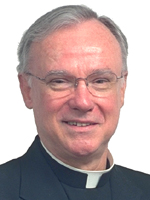 |
"I think people have mixed feelings depending on where their position is on the theological spectrum."
-Father Donald Senior, Catholic Theological Union
|
Philadelphia's Bishop Burbidge agreed, describing Benedict as a man of conviction and clarity. "He's known as a very compassionate and kind man, and that's what a priest is meant to be," Bishop Burbidge said.
In addition to his pastoral qualities, several leaders agreed that Benedict brings a strong academic background that bodes well for support of theological education.
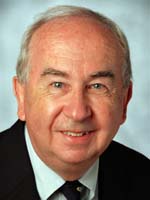 |
"The Catholic Church now has the world's No. 1 public intellectual at its head. He's highly intelligent and culturally aware."
-Geoffrey Wainwright, Duke University Divinity School
|
Duke's Professor Wainwright said he's had numerous theological conversations with Benedict and has been impressed. "The Catholic Church now has the world's No. 1 public intellectual at its head," Wainwright said.
"He's highly intelligent and culturally aware. As a theologian, I'm delighted to have a professional theologian as pope," Wainwright said. "He is a first-rate theologian and a theologian to his fingertips. His election is good for Roman Catholic theology and theological education."
Benedict helped found Communio, a theology journal that has published many of his articles. Aquinas Institute's Father Bouchard said the pope is "used to the give and take of theology." That is good news for seminary education and the church as a whole, he said.
"We need to continue to find ways to create a fruitful dialogue between bishops and theologians," Father Bouchard said. Bishops traditionally preserve and protect doctrine, he added, while theologians push the envelope on interpretation. Both, and fluid communication between the two, are vital.
"It's kind of like the church's life, breathing in and out," Father Bouchard said.
The busy future of U.S. seminaries
The new papacy comes at an important time for the Catholic Church in North America, where more than 75 million members in the United States and Canada are served by more than 50 seminaries. An upcoming apostolic visitation of U.S. Catholic seminaries, planned long before Benedict XVI took office, will bring teams of reviewers, appointed by the Vatican, to every campus.
Such a review was last initiated in the 1980s, but incidents of sexual abuse by priests prompted calls in 2002 for a new review. Once it begins in the fall of 2005, the process will likely take more than a year. Many leaders are hesitant to speculate about the apostolic visitation, as it will address the sensitive issue of homosexuality in the church and the priesthood.
"People may associate it with the new pope, but it's not something he's initiated," said the Catholic Theological Union's Father Senior, who said it comes "in response to concerns across the board following the abuse crisis." The visiting church leaders will pay close attention to seminaries' application processes and their practices for ensuring "healthy" candidates for ministry, he said. They will likely ask, "What is the environment of the seminary in encouraging the maturation of candidates?"
In North America and elsewhere around the world, the path to ordination as a Catholic priest is guided by a Program for Priestly Formation adopted by the bishops within each country. Typically these programs are updated once per decade, but the United States is still guided by the program approved in 1992. Bishop Gregory M. Aymond of Austin, Texas, a member of the subcommittee of the U.S. Conference of Catholic Bishops charged with updating the program, said a new draft is slated for discussion at the June meeting of American bishops. From there, it must be sent to the Vatican for approval.
Bishop Aymond, who also chairs the National Catholic Education Association's board of directors, said the new version addresses several cornerstones of priestly development, including pastoral, academic and spiritual formation. It also includes significant changes in its sections on seminary admissions and human development, specifically the formation of celibacy.
None of these cornerstones stands alone, Bishop Burbidge said. "You can't separate intellectual and pastoral formation."
Bishop Burbidge predicts that today's seminarians will embrace the continuity that Pope Benedict XVI will provide. "They're looking for stability," he said. "They know more than ever the world is searching for truth."
Bishop Burbidge said that many of the ideas currently in vogue that are opposed to church teachings are lacking something important. "There's something missing here. What is real? What is permanent? What brings peace? We know it is the Gospel."
This realization, and a yearning for something unchanging, draws young people to the church and into ministry, said Bishop Burbidge.
"The young people I'm meeting -- I think they've been products of a world that hasn't embraced what it means to be human and made in the likeness of God," he said.
Seminarians take stock of the transition
Aquinas Institute's Father Bouchard believes that younger students have been enthusiastic about the transition, while older ones are more cautious, taking a wait-and-see approach to the new papacy.
For students like the Catholic Theological Union's Dos Santos, who just finished his degree and is heading into parish ministry, the transition has been "a time of high energy" as well as reflection on the rich history he is entering. Dos Santos said his own reflection has led him to realize that while the pope provides leadership and unity, the Church is bigger than any one pope.
"He's going to be a man who has a particular role in the church ... at a particular time in history," the new seminary graduate said. The same is true of Dos Santos and others entering the priesthood.
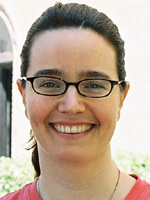 |
"I'm a Catholic who has a bottom-up view of the church. I have a lot of interest in local initiatives."
-Katie Brick, Catholic Theological Union |
|
Katie Brick, another new master of divinity graduate from CTU, said she has mixed feelings about the new papacy. She's thinking of using her degree in a chaplaincy position or at a faith-based nonprofit organization.
"I certainly don't agree with his position on women and ordination," Brick said. Still, she said she has faith that the Holy Spirit is working through the cardinals' selection. "I don't know what this man is going to do."
"I'm a Catholic who has a bottom-up view of the church," Brick said. "I have a lot of interest in local initiatives." She said there are many opportunities for faithful laypeople like her to get involved in their communities. "We're just a very huge, diverse church," she said.
The seminary's president, Father Senior, agreed that much of the church's day-to-day work takes place on the local level. He said he doesn't anticipate any substantial differences in seminary life. In the new pope's first homily, Father Senior saw that Benedict emphasized both the unity of the church and reaching out to other Christians, other faiths and religious seekers. Father Senior believes these are already priorities for seminaries and will continue to be emphasized in the future.
Bishop Burbidge said those strong traditional priorities were the reason for Benedict's selection. "I definitely think it was in the mind of the cardinal electors that we have to stay on course now," he said.
"I think it all reflects that Jesus' promise is true," Bishop Burbidge said. "He will be with us always."
On the Web
Pope Benedict XVI's articles in Communio
Benedict's article "Some Perspectives on Priestly Formation Today" published in The Catholic Priest as Moral Teacher and Guide (Ignatius Press, 1990). Although the book has long been out of print, Ignatius Press has given In Trust permission to provide the complete text of Pope Benedict's address on the Web for the first time. Also included: Pope Benedict's January 21, 1990, homily preached at St. Charles Seminary.
Congregation for the Doctrine of the Faith, including links to documents by Benedict XVI
U.S. Catholic Bishops Secretariat for Vocations and Priestly Formation
Aquinas Institute of Theology
Catholic Theological Union
Duke University Divinity School
St. Charles Borromeo Seminary, Overbrook